The words that tell the story of 2023
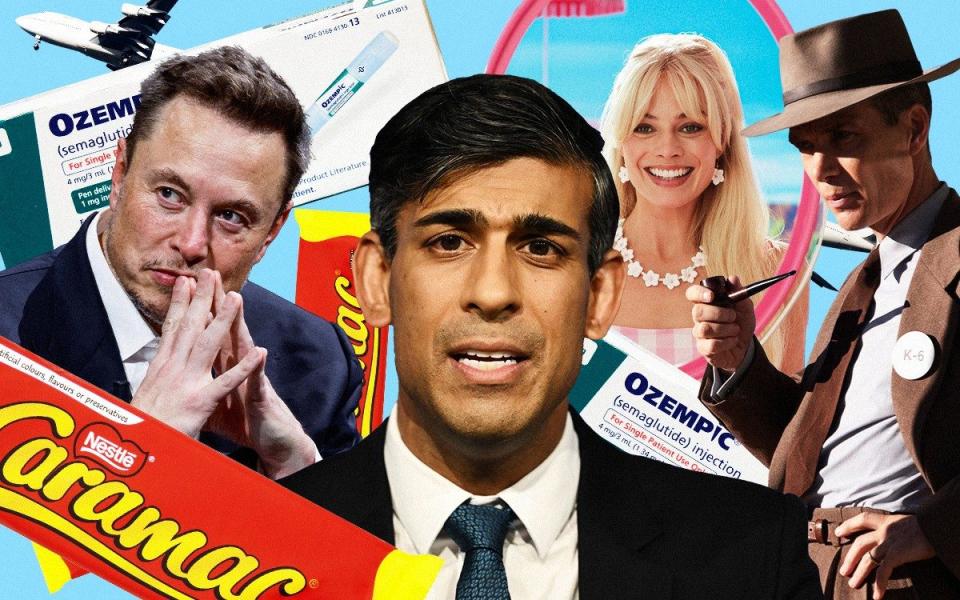
The financial dictionary’s additions and deletions tell the story of the year. Greedflation joined the lexicon in 2023, as supermarkets were accused of profiteering, alongside the greybelt on which Labour wants to build.
Out went the pension Lifetime Allowance, Nestlé’s Caramac and, after 139 years, Amateur Gardening. Some names change: National Express Group turned into Mobico. Return rail fares are going but ticket offices were reprieved.
But while meanings change and phrases become redundant, obsolete words can be revived: 37 years after ‘Tell Sid’ helped denationalise British Gas, he’s returning to sell the state’s NatWest shares.
NatWest’s Coutts subsidiary already has its dictionary entry for debanking Nigel Farage, whose subject access request showed he’d been called a disingenuous grifter.
The bankers’ bonuses cap has gone – as has the Financial Services Culture Board – the renamed Banking Standards Board. The FCA regulator’s Future Regulatory Framework toughens insider-dealing rules but it warned against finfluencers.
Project Yeti was the sale of Silicon Valley Bank’s London arm for £1 to HSBC, which renamed it HSBC Innovation Banking. The US launched a Bank Term Funding Program to rescue its parent but Signature Bank also collapsed.
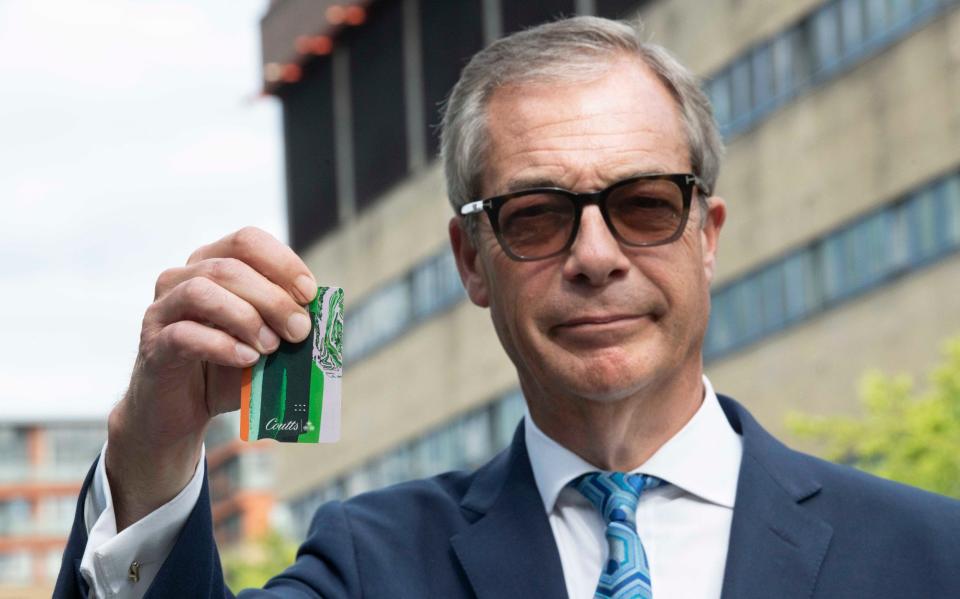
JP Morgan bought Frank, a US financial planner, but claims the accounts don’t exist. Dormant UK bank accounts will fund levelling up through a Community Wealth Fund, while Labour is proposing a National Wealth Fund plus a British Business Bank.
Would-be chancellor Rachel Reeves promised us ‘securonomics’ while the US president explained ‘Bidenomics’. Jeremy Hunt condemned Britain’s declinism and created 12 investment zones.
It was all change in Whitehall. The Department for Business, Energy & Industrial Strategy split into departments for Business & Trade and for Science, Technology & Innovation; the Department for Energy & Climate Change is now Energy Security & Net Zero; and the Department for Digital, Culture, Media & Sport dropped the ‘Digital’.
Newly ennobled Lord Cameron of Chipping Norton rejoined the Government as foreign secretary. Liz Truss launched The Growth Commission – and another ex-PM added Frank Alfred Odysseus Johnson to his family. Nadine Dorries blamed The Movement for Boris’s downfall. Rishi Sunak announced ‘Unicorn Kingdom’ to sell Britain’s technology, while his wife liquidated her Catamaran Ventures UK start-up.
Sunak also appointed a free-speech tsar to counter cancel culture and a common-sense tsar – or anti-woke minister. Jails, meanwhile, were told to refer to ‘prisoners’ or ‘offenders’ not convicts.
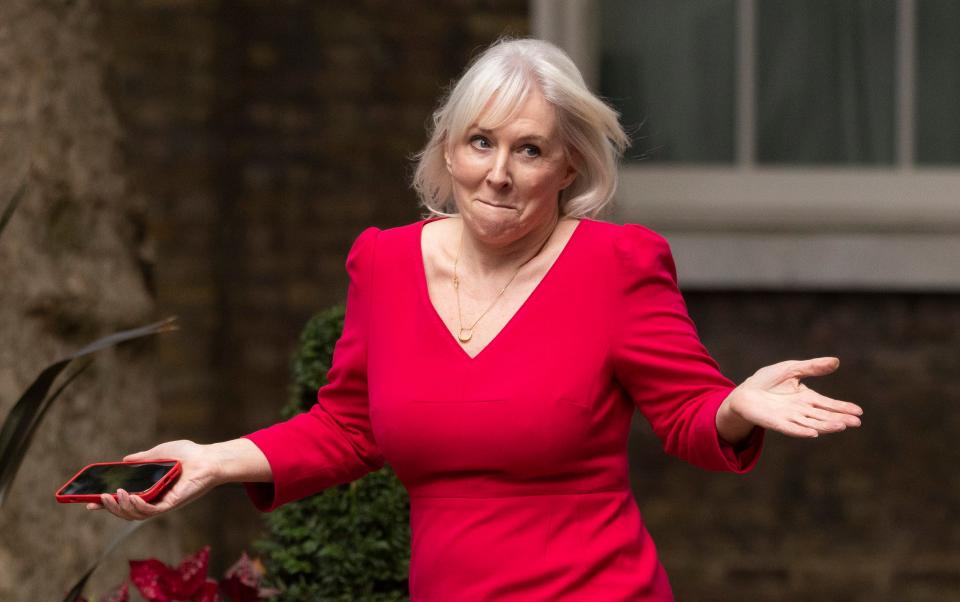
The London School of Economics renamed its Michaelmas and Lent terms as autumn and winter with Christmas and Easter becoming winter and spring breaks.
Disney turned its dwarfs into ‘magical creatures’, UK museums said ‘mummy’ is dehumanising, and London’s mayor said sexist comments should be countered by saying ‘maaate’. Meanwhile Glastonbury renamed its John Peel Stage as Woodsies.
‘Environmental, social and governance’ no longer passes the lips of Larry Fink, head of fund managers Blackrock. Corporate name changes saw WANdisco become Cirata, CABIM turned into CAB Payments before floating, while Electrocomponents is now RS Group, Sensyne Health is Arcturis, and sub-prime lender Provident Financial became Vanquis Banking.
Rival Amigo planned to rebrand as RewardRate – but is closing instead. Pendragon sold its car dealerships and re-emerged as Pinewood Technologies while Melrose demerged Dowlais, GKN’s automotive business.
Odey Asset Management closed after allegations against its founder. Property groups Capital & Counties and Shaftesbury merged to become Shaftesbury Capital. The Railsbank fintech turned into Railsr. Arcelik merged with Whirlpool’s European arm to create Beko Europe, while Smurfit Kappa’s merger with a US packaging rival formed Smurfit WestRock.
Rock Bidco bought The Restaurant Group (Wagamama’s owner) after Wheel Topco (Pizza Express’s owner) dropped out. Bistro Greggs opened. The Brasserie Bar pub group is now the Heartwood Collection. But the burned-down Crooked House is no longer Britain’s wonkiest pub.
Wilko disappeared – and returned. Kiwi shoe polish came off UK shop shelves as demand fell but Marks & Spencer started selling white strawberries. Starbucks brewed up Oleato – a latte with olive oil. Epernay, France’s champagne centre, rebranded its water as La Cuvée.
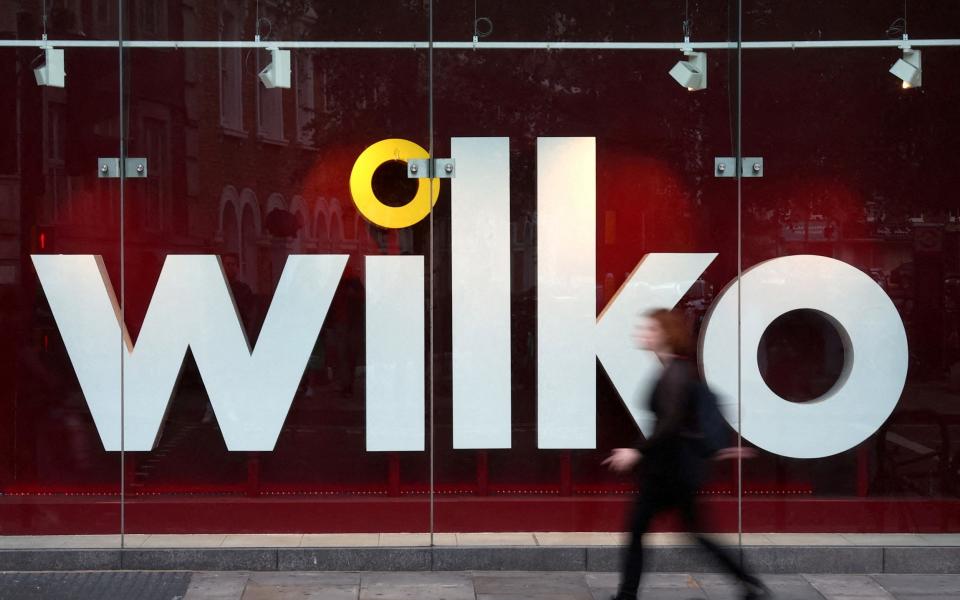
Lilt was renamed Fanta Pineapple & Grapefruit by Coca-Cola. Oligarch Viktor Vekselberg changed his superyacht name from Tango to Fanta to evade sanctions. Meanwhile Project 721, Amazon’s Jeff Bezos’s $500m megayacht, was christened Koru (and he called his humanoid warehouse robots Digit).
Patriotic Millionaires UK is a group wanting to pay more tax but the loss of VAT-free shopping for foreigners was branded a tourism tax. The Treasury used river names to debate tax cuts: River Severn was income tax.
However, the Ministry of Defence used whisky codenames for selling arms to Ukraine: anti-tank missiles were Glenfiddich. Project Zeus was BAESystems’ £4.4bn takeover of Ball Aerospace. Project Aether was the MoD’s development of spy balloons.
Red Zeppelin was the Chinese ‘weather’ balloon shot down over the Atlantic. Airbus rebranded its Zephyr spy drones business as Aalto. Virgin’s LauncherOne rocket take-off in Cornwall failed and Virgin Orbit filed for bankruptcy.
Elon Musk’s Starship rockets suffered ‘rapid unscheduled disassembly’ – twice. Terran 1 is the world’s first 3D-printed rocket. The US Congress renamed UFOs as unidentified anomalous phenomena.
Not yet airborne, Ecojet is a proposed hydrogen-electric airline while Global Airlines has bought four A380s for a planned London-US service. Down to earth, the government plans a National Parking App Platform for car drivers.
Jaguar Land Rover shrank to JLR, Volvo axed its S90 and other estates, Ford made its final Fiesta and the VW Golf is going. But Sony and Honda will launch the electric Afeela while Explorer is Ford’s EV. The Britishvolt battery project went flat but Agratas is Tata’s Somerset battery company and ChargeUK is the trade body for recharging network providers.
The new Electricity Networks Commissioner said the power grid needs upgrading. National Grid transferred the gas network to a new National Gas. The Energy Task Force, set-up in March, was axed in September. The government launched Great British Nuclear and redesignated nuclear power as ‘green’ to attract investment but its Green Day – May 23 – was hastily renamed Energy Security Day.
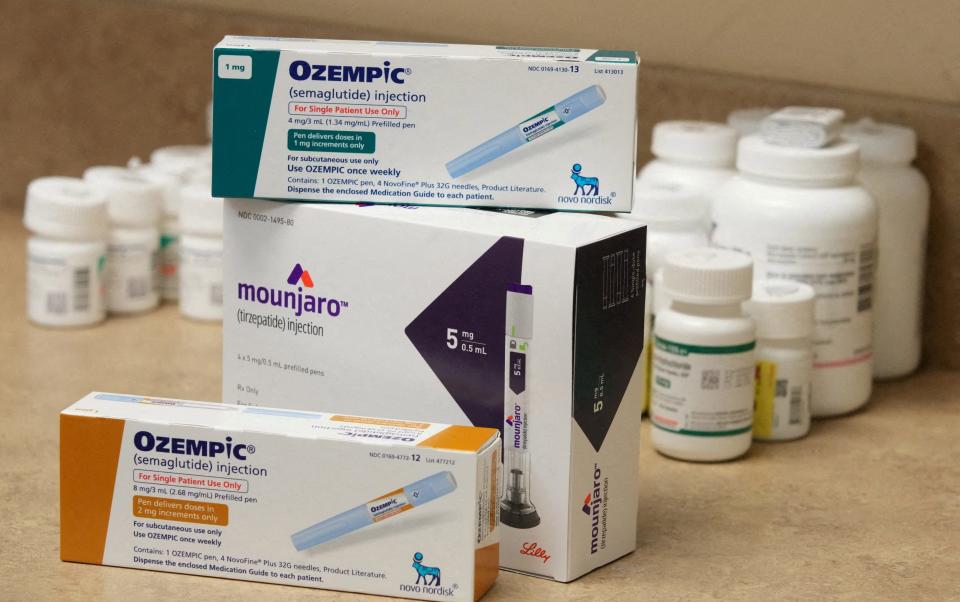
Britain approved the Woodhouse Colliery in Cumbria but Sweden pulled out of Boreas, a Norfolk wind farm. Acorn Project is Aberdeen’s carbon-capture and storage scheme. BP is considering Morgan and Mona, subsidy-free Irish Sea wind farms, but was replaced by City lawyers as a National Portrait Gallery sponsor: the BP Portrait Award is now the Herbert Smith Freehills Portrait Award.
Storm Daniel flooded Libya; record-breaking Cyclone Freddy blew from Australia to Africa; Cerberus and Charon were European heatwaves. The UK declared this the era of Global Boiling but geologists say man’s impact on Earth means we’ve moved from the Holocene to the Anthropocene age.
New Covid variants include Eris or EG.5 and Pirola, or BA.2.86. WHO approved R21/Matrix-M, a malaria vaccine. Wegovy, Ozempic and Tirzepatide are weight-loss drugs but Pfizer abandoned its twice-daily danuglipron rival and AstraZeneca scrapped its Lokelma kidney drug. Britain advanced the Pioneer Programme after leaving the Horizon Europe scientific research project – then rejoined.
EY was seeking new names for its consultancy and audit arms – until the Project Everest split was abandoned. Britain and Japan signed a Hiroshima Accord to safeguard supply chains if China attacks Taiwan. However, the Black Sea Grain Initiative – to protect Ukraine wheat shipments – collapsed. The Treasury followed its Edinburgh Reforms of financial services with a Mansion House Compact to divert pension funds into private equity.
The Windsor Framework on Northern Ireland was stalled by the Stormont Brake. The Bletchley Declaration emerged from the Artificial Intelligence Summit and a £1m Manchester Prize will reward AI development.
Google Deepmind’ GNoME is using AI to discover new materials. OpenAI launched ChatGPT with its Sumplete numbers game. AI rivals include Google’s Bard, Meta AI, Anthropic’s Claude 2, and China’s Moss. Elon Musk countered with Grok.

OpenAI was working on Project Q* before sacking and reinstating chief executive Sam Altman. Meta’s Threads is a rival to Musk’s Twitter – which he renamed X. Apple revealed Vision Pro for VR fans, plus its iPhone15, while Best Take allows Google smartphone users to combine different photos’ best bits. Bold Glamour is a TikTok filter enhancing people in videos.
City solicitors Allen & Overy christened their AI chatbot Harvey – then merged with US lawyers Shearman & Sterling to become A&O Shearman. But criminals use technology too: the National Crime Agency named Russian cyber gangs Bentley, Strix, Globus, Baget, Iseldor, Tropa and Mushroom while Clop were Russians who hacked BBC and Boots payrolls.
Operation Cookie Monster closed the Genesis Market that sold stolen IDs. Northern Ireland police set up a Threat Management Assessment Group after an “industrial scale breach of data”. Police and retailers launched Project Pegasus to fight shoplifting.
Google proposed a UK National Skills Service offering free AI training to all. The PM announced an Advanced British Standard to replace A-levels – in the 2030s. Universities are abolishing applicants’ personal statements. Zoom declared ‘the office’ an outdated term, preferring ‘engagement hub’.
‘Quiet quitting’ describes slacking at work while leavers have contributed to The Great Resignation. Universal Support aims to get benefit claimants into work; returnships are apprenticeships to get older people working again. And nepo babies get jobs through family links.
The WeWork office provider went bust. The M&G Property Portfolio fund closed as investors sold. BT’s City HQ will be redeveloped for HSBC as Panorama St Paul’s. For now, London’s Orchard House remains, Marks & Spencer having been refused permission to demolish the Oxford Street store, but John Lewis’s former Birmingham outlet will become offices, branded ‘Drum’.

Project Silverlight is seeking savings on HS2’s London-Birmingham leg. Redwood was the codename for cancelling the extension to Manchester. Network North is the trade off and Great British Rail is promised. Eurotunnel renamed Le Shuttle as LeShuttle. The US Brightline operator was sued for not changing its name to Virgin Trains USA. The Luton Dart now links the town’s airport to its rail station.
Le Touquet Airport is being renamed Elizabeth II International but UK officials warned others against using the late queen’s name on goods or buildings. Camilla is no longer Queen Consort. Prince Edward became Duke of Edinburgh. Her Majesty’s Theatre reverted to His Majesty’s. The Coronation Food Project is King Charles’s scheme for using supermarket food waste.
The King’s Speech announced a football regulator but ‘Audit Reporting & Governance Authority’ were missing words. The watchdog had been due to replace the Financial Reporting Council in 2023. And the Bill of Rights was scrapped.
Equinox 2 is Openreach’s new pricing plan. Vodafone investor Emirates Telecom rebranded itself as e&. Out goes Apple’s lightning cable as it moves to USB charging.
Bazball entered the dictionary to describe England’s aggressive cricket and, from 2026, the Nations Championship will be a new rugby tournament. BT Sport became TNT Sports. Smithsonian TV and ITV’s children’s channel, CITV, closed. The Beeb codenamed its US relaunch BBCX. Matt Hancock set up his own TV firm, Greenhazel.
The summer’s two cinema blockbusters – Barbie and Oppenheimer– were dubbed ‘Barbenheimer’. Manchester’s Factory International arts venue was renamed Aviva Studios after gaining the insurer’s sponsorship. Disc jockey D-Sol – Goldman Sachs boss David Solomon – spun his last disc.

The indie pop group Easy Life was told to change its name by Stelios Haji-Ioannou, the airline founder whose crusade to own the ‘easy’ prefix also forced Easymove Removals to become Wanna Wardrobes.
Brecon Beacons were renamed Bannau Brycheiniog. Lentune, a 100-metre island in the Solent was claimed for the UK, but EU documents referred to the Falklands as Islas Malvinas. The Ukraine invasion provoked Britain to list assets owned by foreign companies in a Register of Overseas Entities. Meanwhile Croatia replaced its kuna currency with the euro.
New words will enter our vocabularies in 2024.
More community forests and a national park need naming. Old terms will go: goodbye Class 2 National Insurance and the final Boeing 747 is being delivered with the 777 not due until 2025 or later.
The Captain Tom Foundation will wind up and cigarettes will become a no-no word for 14-year-olds. Michel Roux Jr is closing his Le Gavroche eatery. Top Gear is on ice.
But watch out for revivals. The Wombles are returning, as is Deal Or No Deal. Monarch Airlines plans to rise from the ashes of its 2017 bankruptcy.
The pages of the dictionary never close.
